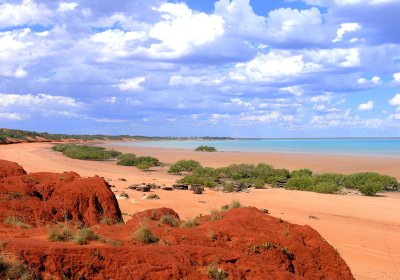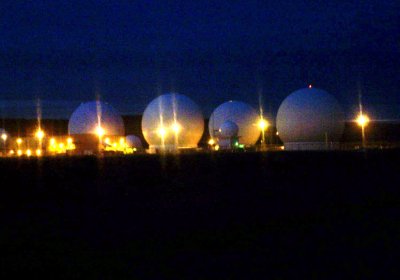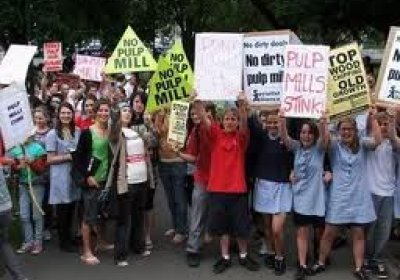The Western Australian government has finalised its acquisition of land in the Kimberley for future development, despite long-standing opposition from environmentalists and the local Aboriginal community.
The 3414 hectares of land near James Price Point — part of one of the most ecologically opulent and pristine stretches of land left in the world — north of Broome, was bought from traditional landowners as “unallocated crown land.”
The area is now under management of LandCorp and the Broome Port Authority.
Philippa Velhinho
“In God we trust, all others we monitor” — Interceptor Operators motto, NSA study, Deadly Transmissions, December 1970.
This chilling quote perfectly summarises the model from which the United States founded their Big Brother approach to intelligence, as more documents leaked by National Security Agency (NSA) contractor and whistleblower Edward Snowden show Australia plays a crucial role in the United States global surveillance operations.
Experts say a statewide ban on synthetic drugs could create a black market for the resale of the substances.
New South Wales Fair Trading has failed to provide an industry buy-back scheme, or propose a means of safely and legally disposing of the products for the tobacconists, service stations and adult shops which stock the drugs.
Last month the death of 17-year-old student Henry Kwan, who plunged from his parents' balcony in Kilarra in Sydney after taking a synthetic substitute for LSD which led him to believe he could fly, ignited fears over the safety of the substances.
Only a month after Western Australian Premier Colin Barnett announced the government would push for the acquisition of James Price Point for future gas and petroleum projects, Shell Petroleum defended their proposal to build a $12 billion floating liquefied natural gas (LNG) plant off the Kimberley coast.
This follows Woodside Petroleum’s decision to abort plans to build a $40 billion onshore gas hub after concluding that it was not economically viable. Instead it will use Shell’s technology to develop its own offshore floating LNG plant.
We've been told opportunity, prosperity and more freedoms came to Australia under the banner of capitalism and the “free-market” in the 1980s and 90s after the economic slump of two recessions.
But when neoliberal ideals and rhetoric are set aside, a grim picture of the great, and ever growing, divide between the rich and poor in Australia emerges yet again.
Between 1920 and 1980, inequality in Australia was shrinking, until a perceived sense of national stagnation took hold and the Hawke-Keating Labor government made the leap into the global free market.
A crowd of up to 200 protesters met in support of WikiLeaks founder Julian Assange at the “Rally for Assange and WikiLeaks: Don’t Shoot the Messenger” at Sydney Town Hall on October 6.—
Leaving a legacy marred by ecological annihilation, government bribery, coercion and corruption, and a penchant for poisoning the environment and communities alike, one of Australia’s most powerful companies — timber-logging firm Gunns — has announced voluntary administration.
The September 25 announcement came after the company’s $904 million loss last financial year, ending an eight-year struggle by Tasmanians against a controversial $2 billion pulp mill project.
With the launch of the Apple iPhone 5 drawing closer, hordes of people around the world scrabbled to their computers to place pre-orders. Hundreds lined up on the streets to be the first to get their hands on the most in-demand gadgetry.
With the pre-order tally reaching more than 2 million within the first 24 hours, it is no surprise that the mineral mining market is booming.
At the heart of the mobile phone production line lies the Democratic Republic of Congo (DRC); a country that has played host to what is likely the world’s deadliest war since World War II.
A colourful group of environmental activists gathered on the steps of Australian mining giant Lynas Corporation’s head office on September 20 to protest the company’s move to build a rare earth mineral refinery in Malaysia.
Thousands of Malaysians have joined protests against the Malaysian government and Lynas for their lack of transparency in not disclosing plans to deal with radioactive toxic waste produced by the Lynas Advanced Minerals Plant, near the town of Kuantan.








